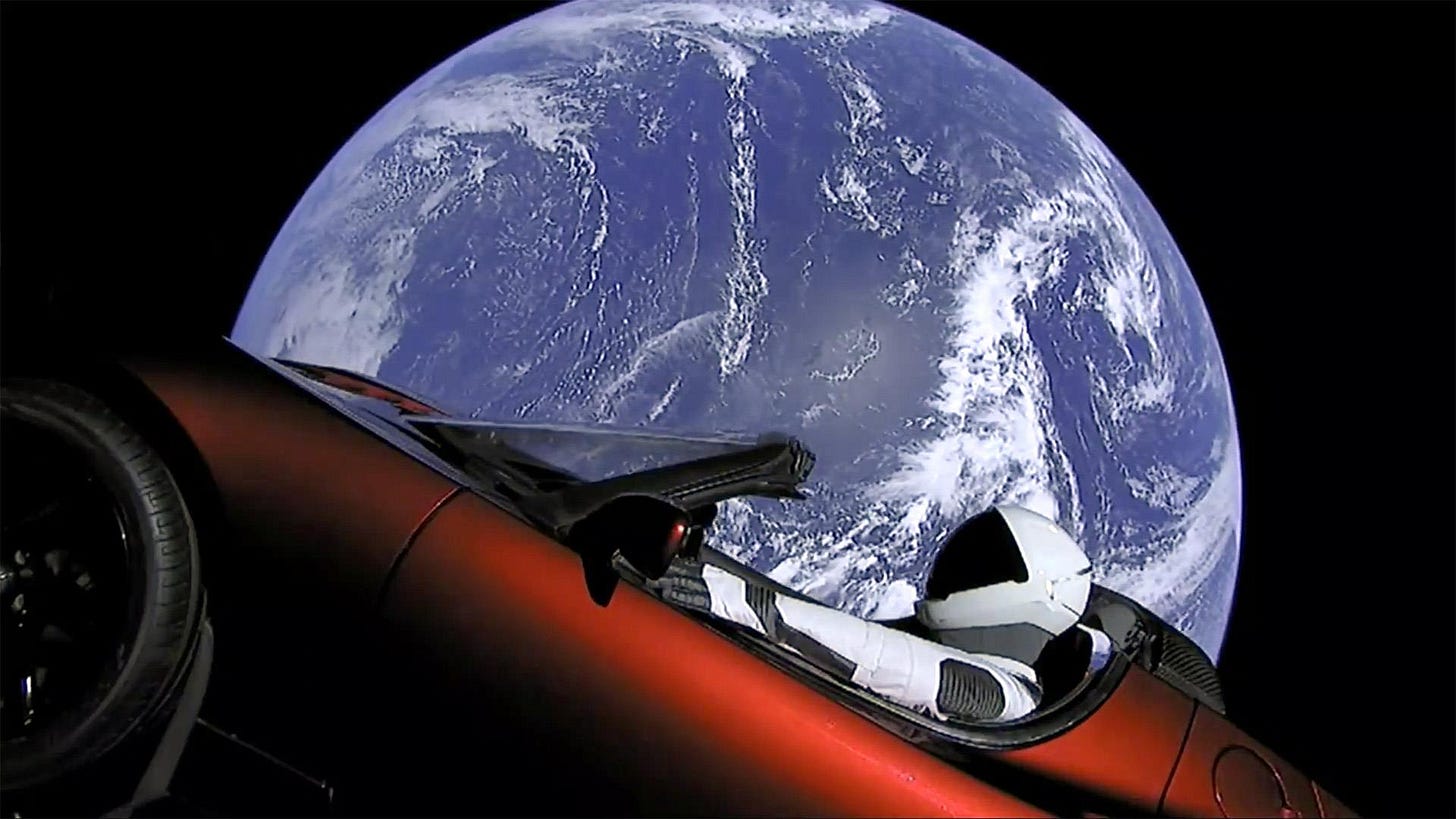Memo #6: Peter Thiel's Guide on How to Build the Future
In which I dive into Thiel's philosophy of the Future.
Hi there,
Yesterday’s memo was about Leo Strauss. You might be wondering how that leads to Peter Thiel’s worldview of The Future, if it does at all.

Peter Thiel’s Straussian Moment
In the spring of 2004, Peter Thiel organized and funded a six-day conference with eight scholars to discuss and explore the philosophy of René Girard, one of Thiel’s major philosophical influences. That conference produced deep ideas and intense discussions, which were later turned into a book as a collection of essays — Politics and Apocalypse. In that book lies Peter Thiel’s most underrated piece of writing – an essay titled ‘The Straussian Moment’.
As I began to read that essay, I recalled Thiel’s book on Startups – Zero to One. Now, these two pieces of writing couldn’t be more dissimilar. One is a philosophical injunction to reexamine the world, and the other is, well… it’s kind of the same but for startups!
The Future is not automatic
That brings me to Thiel’s fascinating views on How to build the future.
We like to think of The Future as something automatic that just happens. What could be more inevitable than the passage of time? Regardless of our wants, needs, and wishes, The Future arrives nonetheless.
Or, does it?
Thiel, being the master debater that he is, reframes the concept of The Future. He puts forward the claim that The Future is not just a point in time that lies ahead, but it also has to meaningfully differ from the present.
If nothing changes for 100 years, then the future is over a 100 years away.
Through this lens, there is nothing automatic or deterministic about The Future.
Complacency kills The Future
We wanted flying cars. Instead, we got 140 characters.
We didn’t get flying cars because we became complacent about the future. The Boomer generation saw rapid technological progress in the 20th century and came to expect that the trend will automatically continue. They looked forward to their “4-day workweeks, energy too cheap to meter, and vacations on the moon.”
In Zero to One, Thiel introduces a compact framework to think through various cultural moments and their likely future trajectories.

The four quadrants are as follows –
Definite Optimism - the future is both concretely defined and better than the present.
Indefinite Optimism - the future is not concretely defined but it’s somehow magically better than the present.
Definite Pessimism - the future is concretely defined and it’s worse than the present.
Indefinite Pessimism - the future is not concretely defined but it is still worse than the present.
If you assume that The Future is this automatic thing that just happens and that the things will continue to get better, you’d be in the indefinite optimism quadrant. That is where the US finds itself since the early 80s. To Thiel, this is one of the worst places to be. He’d rather prefer if we had a pessimistic but *at least a concrete* vision of the future.
Another framework that Peter invites us to think through is Outward vs. Inward.
He says,
"This shift began to take place in 1969, when the United States put a man on the moon; three weeks later Woodstock took place, moving the culture in the direction of yoga and psychological retreat.
Thiel perceives an ever-increasing trend toward inward psychological retreat since the 70s hippie culture as opposed to our earlier visions of building outward in the world.


Thiel would much rather prefer an Elon putting a Tesla in space than a generation that only knows to withdraw into the confines of their minds using the latest psychedelic substance.
How to Get Back to The Future
So if The Future is not automatic, what does it take to get back to the future?
Thiel claims there are three pre-requisites.
First, there has to be a definite vision of the future. We have to find a way to paint a compelling and optimistic vision of the future. Currently, our options are limited to Globalization, AI communism, and hyper-environmentalism.
Second, we need bold, visionary, and relentless entrepreneurs building the future. So we can’t sit back and relax looking at our phones that distract us from how old everything else is. We have to get back to work.
Third, act as if you are not a lottery ticket. We have to abandon Rawlsian and Gladwellian philosophy that says successful people are only successful because of a “patchwork of lucky breaks and arbitrary advantages”
I’ll end with one of his most compelling quotes I’ve ever found
A startup is the largest endeavour over which you can have definite mastery. You can have agency not just over your own life but over a small and important part of the world. It begins by rejecting the unjust tyranny of Chance. You are not a lottery ticket.
See you tomorrow,
Ayush


Really insightful, this made me write the full essay and find more writings!